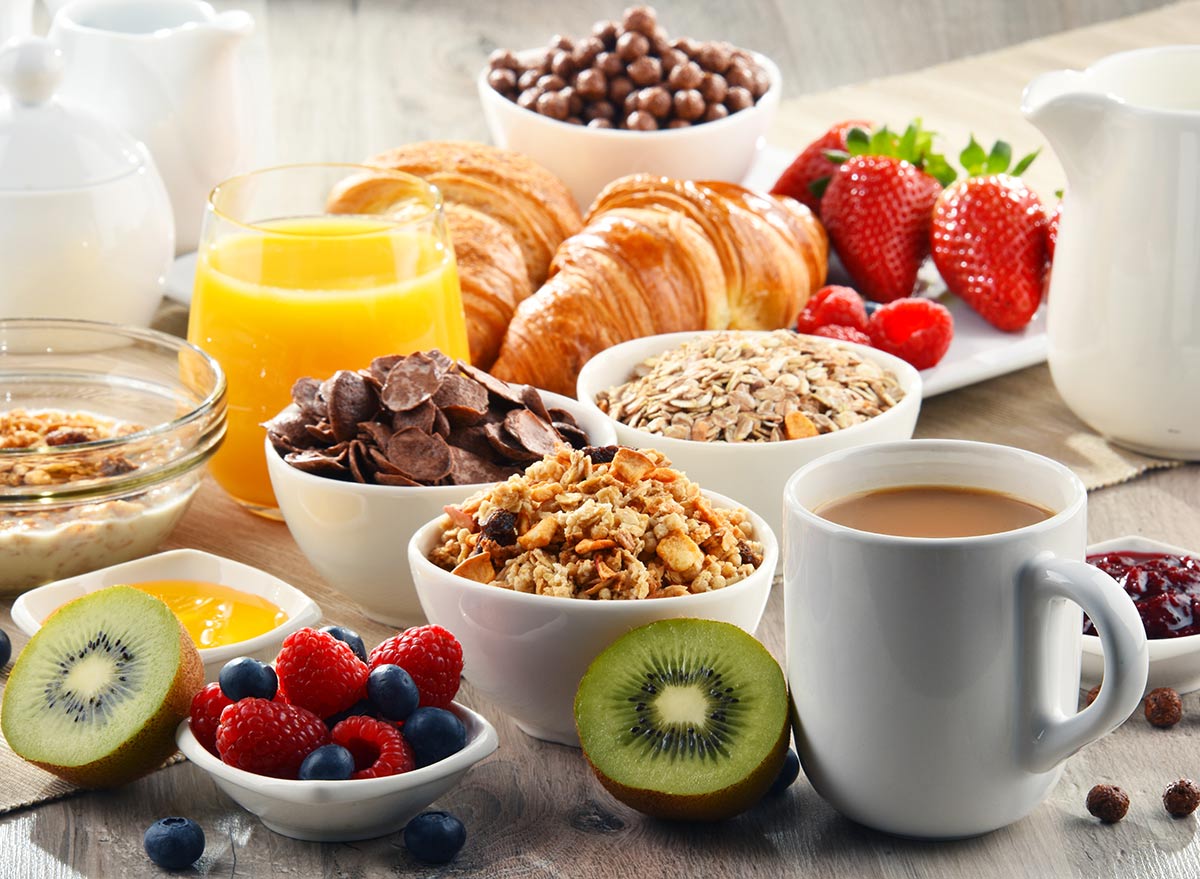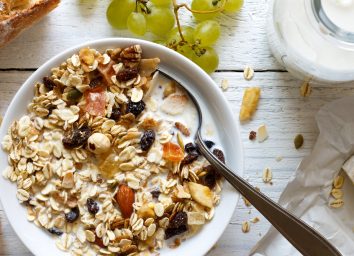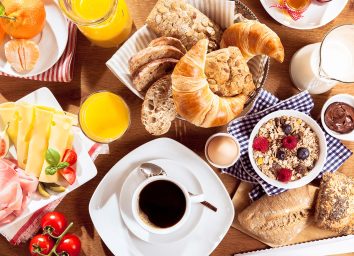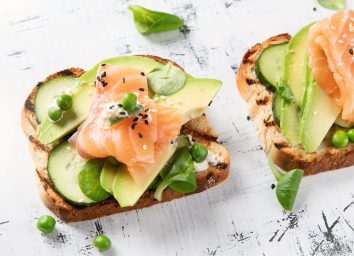The #1 Worst Breakfast to Have If You’re Trying to Lose Weight

Did you know that the phrase “breakfast is the most important meal of the day” was actually coined by a cereal company? It was a 1944 marketing campaign by General Foods to get you to buy more Grape-Nuts cereal. And while this mantra does have some truth to it—breakfast reduces your overall hunger throughout the day, gets you on track to make healthier choices, and even gives your body more energy—the fact that this marketing ploy was used for a box of cereal is a bit counterintuitive. Why? Because cereal is the worst breakfast to have if you’re trying to lose weight.
Here’s why, and for more healthy tips, be sure to check out these 21 Best Healthy Cooking Hacks of All Time.
Cereal doesn’t provide your body with key nutrients.
We know cereal is a beloved food for a lot of people, especially for those who grew up eating their favorite cereals for breakfast before heading off to school. However, while cereal is a tasty treat to have, it doesn’t provide your body with the quality nutrients it needs to start the day.
Most cereals are highly processed in order to have a longer shelf life and typically stripped of their nutritional value. According to Healthline, most cereals are processed into refined grains, which are then cooked and mixed with sugar, cocoa, and water. Some cereals are also coated in chocolate or a sugary frosting towards the end of the cereal making process.
These types of cereals contain high levels of high fructose corn syrup or sugars of some kind, and not a whole lot of fiber—which is a nutrient that helps you to feel full for a longer period of time and assists with weight loss.
Between the stripping of the natural nutrients within those whole grains and the added sugars in the cereal, your bowl of your beloved loops or flakes isn’t giving your body much substance. The added sugars bump the number of empty calories, which means you’ll still feel hungry after a bowl. Or two. Or three.
Cereal will leave you feeling hungry.
If you’re enjoying a bowl of sugary cereal, you’re easily getting more nutrients from that cup of milk than the cereal itself. Especially if you’re drinking cow’s milk, which contains some fat that helps you to feel full. But without any other substance to your breakfast, that fullness won’t stick around for long.
Having foods with fiber is important for losing and maintaining weight. The average American typically only gets between 10 to 15 grams of fiber a day, which is quite low compared to the 25 grams (for women) and 38 grams (for men) that the USDA recommends.
By not filling up on fiber-rich foods at the start of your day, you will definitely feel hungrier. Fruits, vegetables, nuts, seeds, and whole grains are great sources of fiber to incorporate into breakfast, which are all foods that your breakfast cereal likely doesn’t contain.
Plus, if your body is feeling hungrier, you’re likely to eat more throughout the day, which will evidently cause weight gain. However, if you fill your breakfast up with foods that will make you feel full for a longer period of time, you’re less likely to snack and overeat on your allotted calories.
So what is a cereal lover supposed to do?
The trick is to enjoy cereal with foods that contain those nutrients you need to feel full.
If you’re a devout cereal lover and can’t imagine your mornings without it, then there are a few things you can do in order to make your breakfast filling.
- Sprinkle cereal on a bowl of low-fat plain Greek yogurt with sliced fruit
- Add fresh berries and sliced almonds to your bowl of cereal
- Use a low-fat milk
- Eat a plate of two scrambled eggs on the side for extra protein
- Choose a cereal that’s still rich in whole grains and fiber with limited added sugars
If you’re not sure which cereals to buy, here are The Best Healthy Cereal Options You Can Buy. And steer clear of these Unhealthiest Cereals on the Planet.







